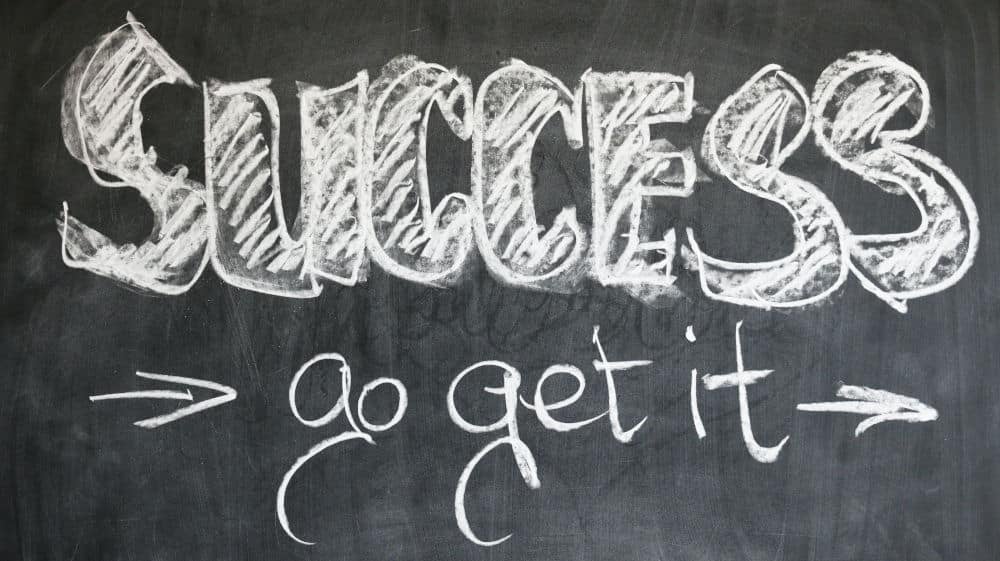
We live in a society where being successful or ‘being the best’ is given enormous value. From a young age we’re taught to aim for the highest grades, to do well at sport, and that winning or achieving will earn us admiration and respect. We often internalise the message that failure is to be avoided at all costs, often experienced as shameful, humiliating or as a blow to our self-worth. However, what we don’t learn as children is that who we are and our inherent value as human beings isn’t dependent on external ‘success’ and that making mistakes and failing is an essential and natural consequence of trying. Not only is failure inevitable but, ironically, it’s often a catalyst for success, in its many forms.
Many famous people throughout history provide us with inspirational examples of perseverance and determination despite setbacks. J.K Rowling, for instance, had her first Harry Potter novel rejected by 12 major public houses. Rather than throwing in the towel, the author continued to seek out a publisher and finally had her first novel published. Her 7 books have now sold more than 450 million copies. Another example of turning failure into success is Oprah Winfrey. Oprah was fired from her first job in television, her boss telling her she’s too emotional and not suitable for television. She’s now the star of one of the highest-ranking shows in American history, The Oprah Winfrey Show, and is one of the highest paid females in the entertainment industry. How’s that for perseverance!
So, what can we learn from failure and why is it so important?
Increased compassion towards ourselves and others
Failure can bring up a myriad of emotions, including disappointment, pain, sadness, shame and more. It’s through allowing ourselves to experience these emotions and finding ways to support ourselves emotionally throughout that we learn to be kinder and more patient with ourselves. Knowing fully well how failure feels, we may then be able to experience more empathy and understanding towards others when they experience setbacks or failures.
Resilience
Resilience is our ability to recover from setbacks or difficulties and keep going. We often try to avoid failure by remaining in our comfort zones or not trying new or challenging things. We often do the same with children, wanting to protect them from the pain of rejection or disappointment. However, in doing this, we don’t give ourselves, or our children, the necessary practice of experiencing failure, dealing with the frustration and stress involved and growing from the experience. Experiencing hardship is what helps us build the emotional skills necessary to face even bigger challenges with strength and perseverance.
New skills and knowledge
Experiencing failure or rejection can force you into one of two options. You can abandon ship and choose not to try again or you can increase your knowledge and skills to enable you to have a better chance at succeeding when you try again. Enhancing your skills and knowledge not only increases your chances of achieving your goals but helps you develop as a person.

It challenges you to look inward
There’s nothing like a huge knock to the ego to help you re-examine yourself, your life, what’s important to you and to re-define your priorities. In this process of soul-searching you may, in fact, come to the realisation that ‘winning’ and being the best at everything isn’t that important. It certainly doesn’t define who you are or your worth as a person.
I can’t even tell you the number of times I hear clients tell me how important it is for them to be the best at things – the highest performer at work, earning more than their peers, having a high position, and so on, and how not achieving this makes them feel worthless. This may be hard to believe since it’s often the opposite of the messages we receive growing up, and from society in general, but our worth is not linked to our performance. Fundamentally, we are all worthy just as we are, for who we are at our core. We seek validation through achievement when we don’t feel good enough. Sadly, no amount of ‘success’ can ever compensate for this lack of self-love and self-worth. This is something which can only be achieved through deep, inner work.
It broadens our perspective
Failure may encourage you to explore the many forms success may take. For some it may be career progression, financial wealth or academic success whilst for others it may be fulfilling relationships, inner peace or spiritual enlightenment. More and more, I’m speaking to and hearing about people who have very successful careers, earn high incomes, and have everything they need and yet are desperately unhappy. In their pursuit of success in the traditional sense, they neglect themselves, their relationships and their spirituality, inadvertently losing a sense of meaning and connection to themselves and others. Experiencing the pain and disappointment which comes with failure often pushes us to question and re-define what’s important. Although this is not an easy road to travel, it has the power to lead us to a deeper sense of satisfaction and enduring sense of happiness.






